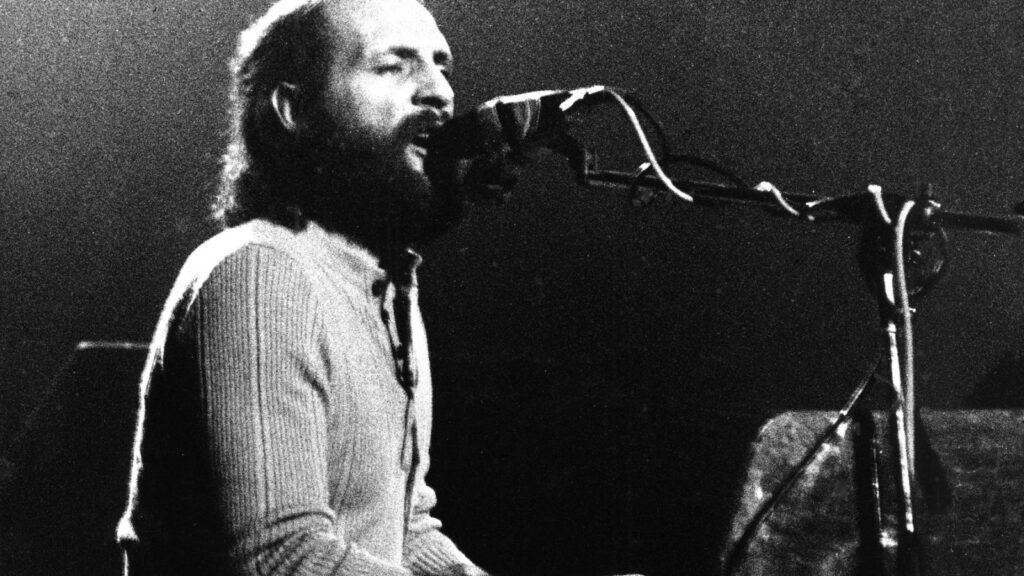Mike Pinder, the Moody Blues keyboardist and the last surviving founding member of the Rock Hall-inducted band, has died at the age of 82.
Pinder’s family announced his death in a statement shared with Pinder’s former Moody Blues bandmate John Lodge, noting that Pinder “passed peacefully” Wednesday “surrounded by his devoted family” at his Northern California home. No cause of death was provided.
In their tribute to the “musician, father, cosmic philosopher & friend,” Pinder’s family wrote, “His final days were filled with music, encircled by the love of his family. Michael lived his life with a childlike wonder, walking a deeply introspective path which fused the mind and the heart.”
Pinder was among the founding members of the Moody Blues — along with Denny Laine, Graeme Edge, Ray Thomas, and Clint Warwick — in 1964. That lineup released their breakthrough single, a cover of “Go Now,” that same year. On the band’s 1965 debut album, The Magnificent Moodies, Pinder is responsible for co-writing (with Laine) all the band’s original songs on the LP. However, after the success of “Go Now,” “Our management had disappeared with the money. One day, we went to the office, and they had basically vanished. They had gone bankrupt, and we were broke,” Pinder told Rolling Stone in 2018.
Soon after, Laine and Warwick left the Moody Blues, and it was Pinder who is credited with enlisting Laine’s replacement, singer Justin Hayward, who, with also-added bassist John Lodge, would form the Moody Blues’ “classic” lineup. “I’d written some songs and sent them to Eric Burdon [of the Animals]. Unbeknownst to me he passed them to Mike Pinder in the Moodies and soon I had a call from Mike. I came up to London to meet him and we got on,” Hayward told Rolling Stone.
That quintet — Pinder, Hayward, Lodge, Thomas, and Edge — would record the band’s next eight albums together, stretching from 1967’s Days of Future Passed to 1978’s Octave, with Pinder contributing piano and keyboards while pushing the Moody Blues toward progressive rock with his pioneering use of the Mellotron.
“The Mellotron enabled me to create my own variations of string movements. I could play any instrument that I wanted to hear in the music. If I heard strings, I could play them with the Mellotron. If I heard cello, brass, trumpets or piano, I could play them,” Pinder told Rolling Stone in our oral history of the band’s “Nights in White Satin,” which featured Pinder’s recitation of the Edge-penned poem “Late Lament.”
“With the ‘Tron I could develop melodies and counter melodies within the Moody Blues’ songs. When you become the orchestra, I think you become the arranger by default. I could create the backdrops and the landscape for the melodies that the guys were writing.”
Other notable Pinder-penned tracks from his decade-and-a-half tenure with the Moody Blues include “A Simple Game,” “Om,” “Have You Heard,” and “The Best Way to Travel.” “The Sixties and Seventies were very unique for the artist as well as for the listener,” Pinder told Rolling Stone. “I think the fans in those days were just as creatively turned on by the evolution of our music and our message as we were turned on by creating it.”
Following the Moody Blues’ mid-Seventies hiatus — during which Pinder released his solo album The Promise — the band reunited with Pinder returning in a limited role for 1978’s Octave. Having moved to California and opting not to tour with the band in support of the LP, Pinder was ultimately replaced by keyboardist Patrick Moraz, putting an end to the group’s “Core Five” lineup.
While Pinder never rejoined the Moody Blues, he reunited with his former bandmates when the group — after years of being “snubbed” — was finally inducted into the Rock and Roll Hall of Fame in 2018. With Pinder’s death, all five founding members of the Moody Blues — Laine (who died in 2023), Edge (2021), Thomas (2018), and Warwick (2004) — are now deceased.
“He created his music and the message he shared with the world from this spiritually grounded place; as he always said, ‘Keep your head above the clouds, but keep your feet on the ground,’” Pinder’s family added in their statement. “His authentic essence lifted up everyone who came into contact with him. His lyrics, philosophy, and vision of humanity and our place in the cosmos will touch generations to come.”
